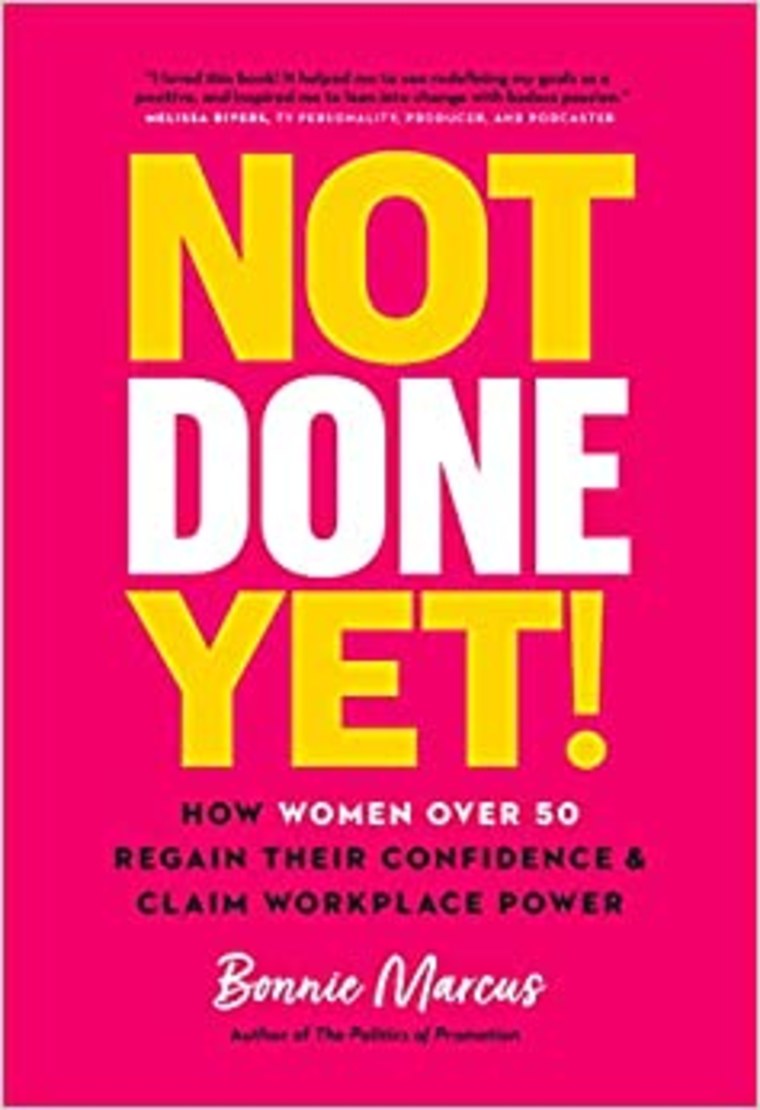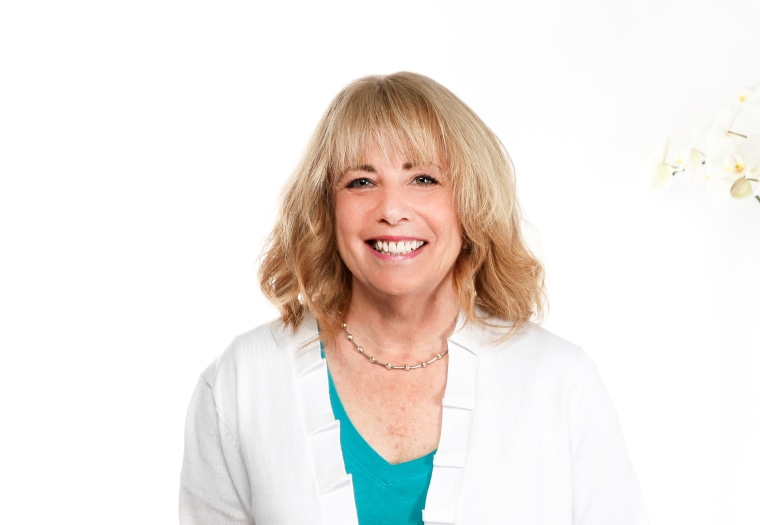For decades, executive career coach Bonnie Marcus has witnessed many of her clients suffering due to ageism in the workplace. Women over 50, she explained, are not only marginalized at work, but they often marginalize themselves.
“I had one woman who was afraid to come in for her birthday, because she didn’t want to have to answer the question: ‘how old are you?’” Marcus, 72, recounted to NBC News’ Know Your Value.
Unfortunately, statistics support some of these fears. Three in five older workers have experienced or witnessed ageism in the workplace, according to the AARP. And a study by the National Bureau of Economic Research found that while men and women both face ageism, women face it earlier and with greater intensity.
The issue has largely remained under the radar, Marcus said. She's hoping to open the conversation through her new book “Not Done Yet!: How Women Over 50 Regain Their Confidence and Claim Workplace Power," in which she interviewed women who have faced ageism, and coaches them on how to defy it.
Marcus shared some of her top research takeaways with Know Your Value.
1. Examine your assumptions.
Most people create narratives about how they fit in at work. Sometimes the narratives say negative, unhelpful things like “I’m too old to ask for a raise or a promotion,” Marcus said.
Many of these thoughts might be based on assumptions, not reality, Marcus said, and it’s time to discard them.
“That can become a self-fulfilling prophecy, and that story might be sabotaging you,” she said. “We almost apologize for our age rather than owning it. By making these assumptions, you’re holding yourself back with your own ageism.”
2. Own a positive story instead.
Marcus suggested writing down a new, empowering story to replace the negative thoughts surrounding age. Instead of saying "I'm too old," say "I'm just right."
The new story should be empowering and fulfilling. Marcus suggested saying this story out loud every day, thereby creating a new, better reality.
“By doing that, you’re drawing from your own strengths and talent, and owning the power of your age and experience. It’s owning who you are,” Marcus said.
3. Declare your ambition.
Unfortunately, many employers assume that older workers are less committed to the job or that they can only handle certain tasks, Marcus said. Women have to be proactive to combat this assumption.
“Have that discussion and say that you are still committed,” said Marcus. “Ask, ‘how can I continue to add to this conversation?’ Put your ambition out in the open.”

4. Be visible across generations.
It’s dangerous for older women to fall into the background at work, Marcus said. Instead, be as visible as possible. Get involved in affinity or leadership groups, special projects or company events.
Marcus also strongly suggested reaching across the table to younger employees, perhaps by mentoring or creating a cross-generational network.
“Boomers make assumptions about Millennials, and Millennials make assumptions about Boomers. It’s not until you build one-on-one relationships that some of those stereotypes dissipate and you understand that you can add value and help each other in many, many ways,” Marcus said.
5. Speak up about discrimination.
It can be extremely difficult to speak up about ageism in the workplace. But if a behavior is repeated and blatant, it ought to be documented and addressed with HR, Marcus said. It's not only standing up for what’s right, it will give the worker a bargaining chip during negotiations.
“Even if you are going to be pushed out, you may be able to negotiate a better package because you’ve got this documentation and filed this complaint,” said Marcus.
There’s also a great need for strong, public voices against gendered ageism. There has not been a #MeToo-like moment for older women in the workplace, Marcus said, and it needs to happen.
“I think it’s this double-edged sword where people want to stand up for themselves, but they don’t have the platform to do it,” Marcus said. “But women have to own it. We’re not done yet.”
